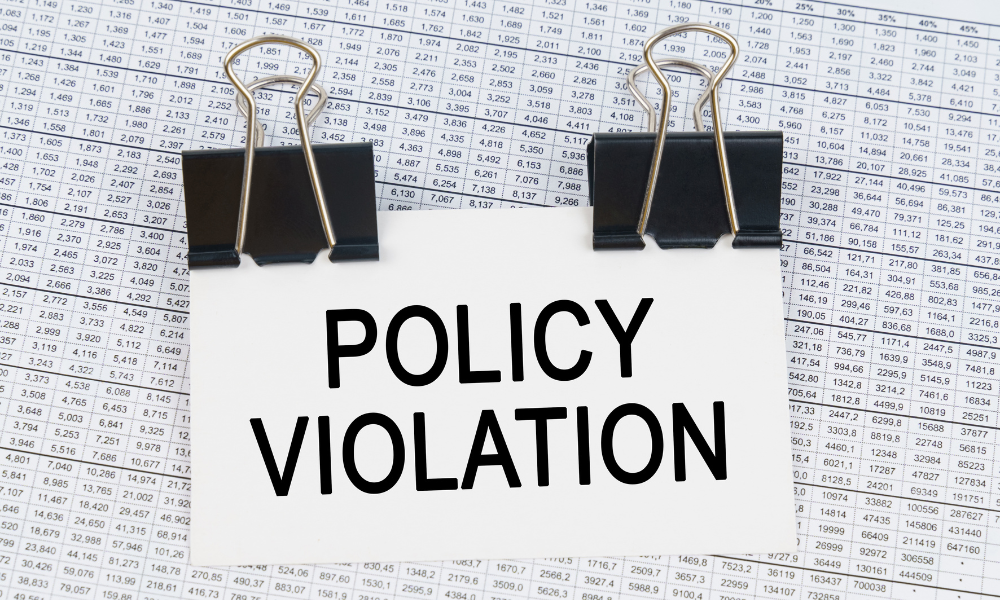
Worker loses his job over a policy violation—but is the rule applied equally?

The Fair Work Commission (FWC) recently dealt with a case involving a worker who challenged their dismissal, arguing that it was unfair.
The worker claimed that he had been dismissed unfairly despite having followed standard practices that had been in place for years. He argued that some of the alleged violations were common among employees, and that he had not been the only one engaging in these practices.
According to him, the employer selectively enforced policies against him while overlooking similar actions by others.
Additionally, the worker questioned whether the company had handled his disciplinary process properly. He argued that the employer had failed to provide clear and fair warnings before resorting to termination.
The worker was a garbage truck driver employed by the company for over a decade, first as a casual worker and later as a full-time employee. The employer cited multiple safety violations leading up to the dismissal.
In October 2023, the worker was involved in two separate accidents while driving, including hitting another vehicle’s bumper and failing to check that the truck’s side arm had retracted before moving forward, which caused $3,000 in damage to a parked vehicle.
Following these incidents, the employer met with the worker to discuss the accidents. The worker admitted responsibility for the first accident but disputed fault for the second.
The employer issued a warning, stating that safety procedures required drivers to ensure all equipment was fully retracted before moving their vehicles. Despite this, further safety violations occurred in the months that followed.
“Drivers were told they should only drive on the operator/pickup side when picking up a bin,” stated [the employer]. “They were also told not to drive long distances on the operator/pickup side.”
The worker said that this method was often safer and quicker, but the FWC determined that the employer’s rule prohibiting this practice was clear and had been reinforced through safety briefings.
The employer also pointed to a failed alcohol breath test in June 2024 as part of the justification for dismissal. The worker took a routine breathalyser test before starting his shift, returning a reading of 0.013% blood alcohol concentration.
A second test 24 minutes later recorded 0.007%, which remained above the company’s strict zero-tolerance policy on alcohol.
At the time, the worker did not dispute the test results but later claimed that external factors such as cologne and hand sanitiser could have influenced the reading.
The FWC rejected this argument, noting expert testimony stating that such substances do not impact “active mode” breath tests.
“The literature tells us that there is no safe level for there not to be impairment,” said [the expert witness]. “While there is alcohol in the body, there is impairment.”
Before this incident, the worker had received several warnings related to safety violations. Written warnings were issued in October 2023, March 2024, and May 2024. After the failed breath test, the worker was issued a “show cause” letter and was given the opportunity to explain his actions before the employer made a final decision.
Another issue raised by the employer was an incident in April 2024, when the worker was stood down. After being informed of this decision, the worker immediately announced it to colleagues despite being instructed to keep the matter confidential.
The employer alleged that the worker attempted to make 50 copies of the stand-down letter to distribute in the workplace.
During the meeting, the worker also made statements to [the manager] suggesting that he could face consequences for issuing the stand-down order. The FWC noted that the worker's response to the decision was inappropriate.
“If [the employer] tries to pay any fines for you, it will also be fined,” the worker said to [the manager] during the exchange.
Additionally, after being directed to leave the site, the worker remained for several hours, delaying operations and contributing to workplace disruption.
After reviewing the evidence, the FWC found that the dismissal was not unfair. The Commission determined that the worker had repeatedly disregarded company policies and safety rules designed to protect employees and the public.
“There was a valid reason for dismissal and the process was procedurally fair,” the decision stated. “Dismissal was a reasonable and proportionate response in the circumstances to [the worker’s] repeated safety breaches and failure to follow numerous reasonable and lawful instructions.”
The worker argued that he was being treated unfairly compared to other employees who had failed alcohol tests but had not been dismissed. However, the FWC noted that those employees did not have a similar history of discipli